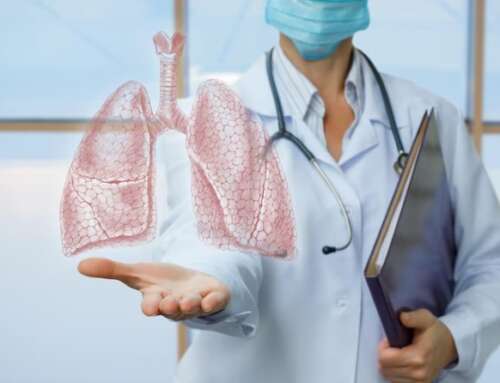Knowing the risk factors of Sarcoidosis can help you be aware of this debilitating disease. As we stated in our previous blog, many people are unaware of this disease. Thus we want to spread the word about it. in April, since it is awareness month for Sarcoidosis. It seems quite appropriate for our Sarcoidosis blogs. Please refer to our previous blog for an introduction to Sarcoidosis.

Easter Greetings from FLASS
First: An Easter Welcome to Spring from FLASS
However, before we go into our main topic of “Risk Factors for Sarcoidosis,” we want to send you our fond greetings for Spring, Passover, and Easter.
It is ironic that we have so much April joy and beauty blooming around us. The reason we call it ironic is that we know the natural beauty of Spring brings many difficulties to some of our respiratory patients.
So, if you have asthma, COPD and/or allergy, please be alert. If spring brings you triggers, follow your action plan for your condition, and do not be afraid to call us for help. Otherwise, may our brighter, sweeter sunny days cause you a joyful heart.
Introducing the Risk Factors of Sarcoidosis
First of all, Sarcoidosis can absolutely affect people of any age, race, and gender. However, certain ages and nationalities will put you in a high-risk group for the disease.
The Age Risk Factor:
· We see the disease strike people between the age of 20 and 30. However, some experts mark the danger years from age 20 to 40.
The Nationality Risk Factor

Some Risk Factors For Sarcoidosis Can Be Controlled. Some Risks Cannot Be Overcome.
- African-Americans run the highest risk group due to nationality and genetics.
- Likewise the people of Northern European and typically folks from Scandinavia.
The Sex Risk Factor
- Women, in general, are in a higher risk group than men. We simply see the disease manifests slightly more often in women than in men.
Different Manifestations and Risks in Different Groups
The disease shows up differently in different higher risk groups of people. Almost every sarcoidosis patient shows symptoms in the lungs and lymph nodes.
- However, we see eye involvement in African-Americans as well as people of Japanese descent. And we do not see this symptom manifested as often in Caucasian eyes.
- Skin lumps are “most likely to affect people of Northern European descent, and those with a Japanese background.
- Likewise, people of Northern European descent and those with a Japanese background are a likely risk to Sarcoidosis-related heart problems.
A FLASS Caution: Note the Environmental Risk Factors of Sarcoidosis

Most Sarcoidosis Patients Can Lead Normal Active Lives. Follow Your Florida Sarcoidosis Plan, Take Your Medicine, And Enjoy Family And Carer.
A healthy lifestyle and avoidance of bacteria, viruses, or chemicals might lessen your chances of contracting Sarcoidosis. As in asthma, we suspect viruses or chemicals might be triggers for the disease.
On the one hand, these triggers would cause no harm to most people. On the other hand, the same triggers could irritate the immune systems of people who are already at genetic risk for developing Sarcoidosis.
Thus, if you are suspicious you might have the nationalistic or genetic predisposition, then avoid inhaling chemicals, cleaners, and dust.
At the same time, we advise you to maintain your distance from people with bacterial or viral illnesses. For you, with a predisposition for Sarcoidosis, they are a risk factor. Use caution.
A Few Star Points: What Sarcoidosis is Not.
There is a lot of misinformation out there about Sarcoidosis. FLASS sets the record straight:
1. Sarcoidosis is not cancer.
2. And it is not contagious.
3. Although it can occur in families, it is not inherited in the typical way of many other diseases.
4. Here is the best part about the diagnosis of Sarcoidosis: The disease does not typically disable you. You can enjoy a very normal life with Sarcoidosis.
5. In fact, in the majority of cases, the disease appears only briefly and disappears on its own.
The Rare Risk of Cardiac Sarcoidosis

Cardiac Risk in Sarcoidosis is rare but Our Specialists Have You Covered.
Cardiac Sarcoidosis is rare. Only a small number of Sarcoidosis patients get heart involvement. In this version of the disease, “clusters of white blood cells, called granulomas, form in the tissue of the heart.” They can invade any part of the heart. In the heart muscle, “they can interfere with the heart’s electrical system (conduction defects) and cause irregular heartbeats (arrhythmia).” We also want you to know that Cardiac Sarcoidosis sometimes can result in heart failure.
The cardiac involvement of this disease tends to affect younger people, generally between 25 and 45 years old. It is especially important to tell you that at Florida Lung, Asthma and Sleep Studies, your healthcare team is trained in secondary areas beyond the pulmonary system. Thus we are on the lookout for manifestations of Sarcoidosis other than om the lungs. For more details about cardiac involvement with Sarcoidosis, visit this informative article at a highly reputable source.

Florida Brings Outdoor Fun, But Watch Out For Sarcoidosis Triggers.
Terrific Take-Aways from our Blog Series on Sarcoidosis
By review: Remember that Sarcoidosis causes tiny collections of inflammatory cells to grow in one or more of your organs.
Risky Business: If you ignore the disease, or your physician misdiagnosis it, granulomas build up. They can interfere with the proper function of your organs.
Note to Self: The granulomas can appear in many parts of the body. So the symptoms are not confined to the lungs.
In the next blog, we will bring you information about the three classes of Sarcoidosis to wrap up our coverage of this disease and increase your awareness that it is a treatable condition.
From Our FLASS Family to Yours: Have a Happy and Blessed Easter and Spring
And thank you for reading the Florida Lung, Asthma and Sleep Specialist’s Blog about News You Can Use to improve your respiratory health.


